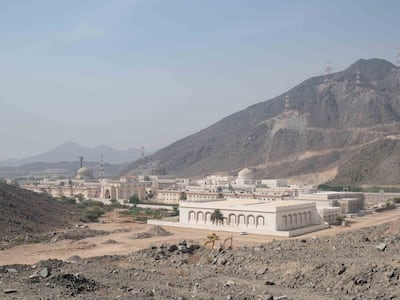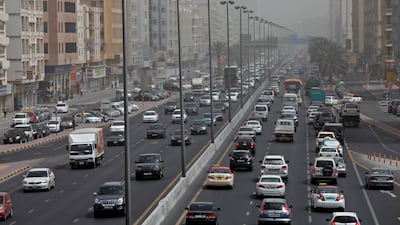The three-day weekend and several exciting new projects in Sharjah have improved the work-life balance for many, but residents believe that having a metro and better connectivity would, to a large extent, solve the traffic problems they face.
Earlier this week households in Sharjah were urged to participate in a citywide census by Sheikh Dr Sultan bin Muhammad Al Qasimi, the Ruler of Sharjah, who said it will pave the way for more development projects.
When asked which projects they would like to see, people in the emirate told The National that a metro line that connects the emirate to Dubai would be beneficial.
An efficient, safe and cost-effective public transport system, the replacement of roundabouts with bridges, the construction of hospitals in remote areas and the opening of schools outside popular school zones are some of the things on their wishlist.
“A metro in Sharjah will not only reduce traffic congestion and end the hours-long commute from and to the emirate, but also help in protecting the environment,” said Abdulrahman Saeed, 33, from Sudan.
“It also means more time with family and well-rested employees, who will certainly be more productive.”
Yaqoob Al Hammadi, a retired educational expert, agreed with Mr Abdulrahman that the metro was perhaps the best option to solve traffic problems in the city and to and from Dubai.
“It is essential that Sharjah introduces a train or a metro,” he said.

Another important project that people want to see put in place is the removal of clusters of schools from a few areas.
“Several schools are in the same area and this is something that must be looked at,” Mr Al Hammad said.
Every day hundreds of parents pick up their children at the same time and from the same zone, leading to traffic jams that affect nearby districts.
“I used to send my children to school an hour earlier and pick them up an hour late to avoid traffic gridlocks around their school complex,” Mr Al Hammad said.
Yousif Saleem, 50, a Jordanian father of two, spends between three and four hours on school runs every day.
“My children go to Rosary private school in Muwaileh area, which is home to at least 20 schools,” he said.
“Can you imagine the number of cars on that one street during drop-off and pick-up hours?”
Emirati Khaled Mohammed, 48, believes that remote areas such as Dibba Al Hisn and Kalba need better services.
“We are talking about schools, hospitals, better roads and malls to provide people living in these areas with all the services they need,” he said.
“Even in the city, several internal roads are still not paved.”

















